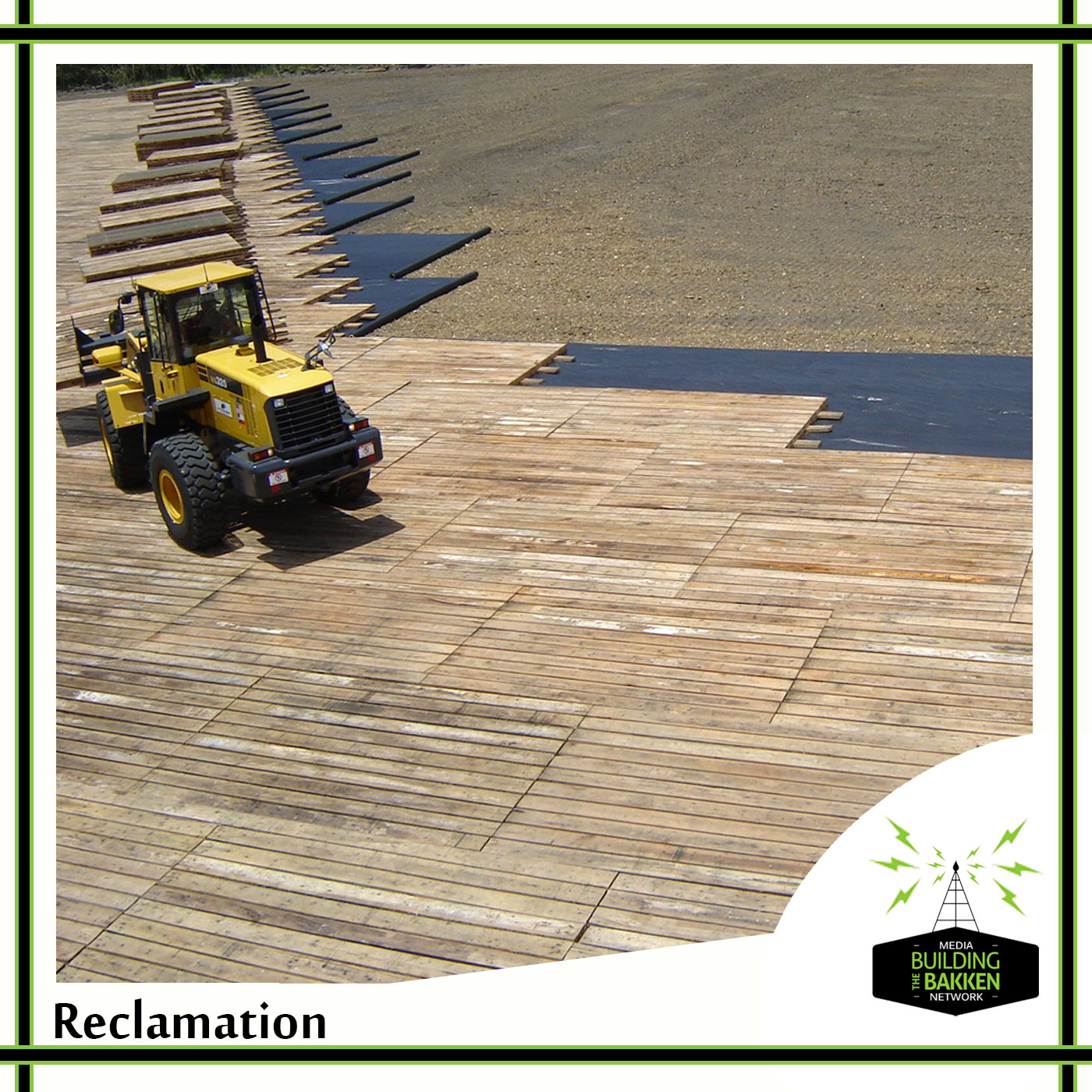
Interviews: Julie Fedorchak and Tyler Axness and Brian Kalk and Todd Reisenauer
“As an industry, we recognize the global concern related to the potential impact of greenhouse gases and other air emissions on the environment. I applaud the North Dakota Petroleum Council for its work to create a flaring task force — a group spearheading the industry’s efforts to significantly reduce natural gas flaring in the Bakken,” Marathon Oil CEO and president Lee Tillman said at the Williston Basin Petroleum Conference in Bismarck, ND, this past May.
In addition to addressing flaring, Tillman also understands the people of North Dakota want to preserve the state while working with industry.
“As an industry, we must be respectful of the communities in which we operate,” Tillman said. “We must be responsible corporate neighbors and never lose sight of the fact that we’re guests in these communities and that we’ll be judged by our individual and collective behaviors.”
The North Dakota Public Service Commissioner is an agency that not only oversees much of the oil and gas distribution, but also the communication infrastructure in the state. As we enter new heights in oil and gas development, coupled with Big Data and technology increases, the Public Service Commissioner’s role is not doubt under the microscope by many as distribution of energy and ideas are vital to the state.
For our Energy Policy Special, candidates were provided three questions in advanced, limited to three minutes per question and were asked to refrain from using their candidate’s name in their response. All interviews were conducted in person.
In the 2014 North Dakota Election will feature a total of four candidates for Public Service Commissioner on this year’s ballot. There are two positions available with two candidates running for each post. One race features Julie Fedorchak and Tyler Axness. The other race, Brian Kalk and Todd Reisenauer.
Julie Fedorchak
To listen to Julie Fedorchak, candidate or North Dakota Public Service Commissioner, click here
For more information on Fedorchak’s campaign, click here
Tyler Axness
To listen to Tyler Axness, candidate or North Dakota Public Service Commissioner, click here
For more information on Axness’s campaign, click here
Brian Kalk
To listen to Brian Kalk, candidate or North Dakota Public Service Commissioner, click here
For more information on Kalk’s campaign, click here
Todd Reisenauer
To listen to Todd Reisenauer, candidate or North Dakota Public Service Commissioner, click here
For more information on Reisenauer’s campaign, click here
North Dakota Public Service Commission Questions
1. Tell me why the people of North Dakota should cast their North Dakota Public Service Commissioner vote for you. (3 minutes)
Axness: Well Jason I think in this unprecedented time in North Dakota’s history we need to have a balanced approach and I think we need to have that begin with a balanced Public Service Commission. We need a new vision, a new leader on the commission that is going to ask the tough questions. Somebody that is going to plan ahead. So that when we are extracting these resources, be it coal, be it oil or natural gas that we are extracting them safely. Then they are being transported safely as well so our communities are not in harms way and we are doing this development in a way that is going to leave the quality of life that I had in North Dakota for future generations.
Fedorchak: There are really two reasons why I believe North Dakotans should support my candidacy for the Public Service Commission. First its experience and ideas. I have 20 years experience working in North Dakota both in the public and private sector. I spent ten years combined working for Governor Ed Schafer and U.S. Senator John Hoeven, then another ten years in the private sector running my own business.
I believe those two positions give me a lot of great experience to use to work on behalf of North Dakota inside this really critical time in our state’s history. I have a strong passion for North Dakota. I love North Dakotans, and I want to use this experience to make our state the best it can be, maintain our quality of life and the incredible job opportunities that we can afford to people through our state and throughout our country into the future.
And then I have a lot of great ideas I think that I can bring to play in this role, and I’ve started to do that both on the pipeline side, the rail safety and moving ahead on using the gas resource that we have in North Dakota to benefit other North Dakota communities.
So I am really excited about the position and I hope that folks will support me and give me another couple of years on the commission.
Kalk: First off Jason, thanks for having me on the show today, I really appreciate the opportunity to talk to some of your listeners and readers. I guess a little background about me. I grew up in Bottineau, graduated high school in the 80′s, spent 20 years in the Marine corps, retired and then taught at North Dakota State. In 2007 actually actually is when we first started our our first chance to run for election for the Public Service Commission.
In 2008 we got elected by the voters of North Dakota and we talked about energy security, how important it is for North Dakota to develop its energy resources wisely. We ran a successful campaign, got elected, been on the job now for almost six years and we are running for re-election.
The biggest reason I think voters should work for me is we have the background experience to meet the challenges ahead. I’ve got a background in energy development. I’ve got a background in natural resources. The challenges going on in the state right now are great opportunities, but nevertheless you have to have the right people that can make the right decisions and we’ve been very successful in the Public Service Commission over the past six years whether its coal, oil or natural gas, growing our energy resources, making sure we reclaim the land. Make sure we do our best to keep the cost of electricity down.
I saw some numbers that right now North Dakota has the lowest cost of electricity in the country. So we’ve been doing a good job, we’ve got a good team and let’s keep it together.
Reisenhauer: Well its pretty clear Jason what we are seeing here in really the last few years, I think it has gotten to a boiling point where government isn’t, necessarily, we really do not have a small government in North Dakota. What we have is a system that applies band-aids to issues. It goes from issue to issue, there is always a new issue and then there is a proposal for that issue rather than a comprehensive strategy. Or a strategic way at looking at problems.
What I will bring to the PSC is not only a new vision or a new direction, but a demeanor and professional attitude that looks to cut off problems before they kinda come to a head.
I’ll give you a couple of examples here that happened recently. One is the ongoing battle with easements, right of way to property with pipelines. Simple matter where landowners feel like there has been certain companies, now its not all companies, I don’t mean to generalize contractors, but there has been a few companies that had not abided by that easement and also maintenance.
So what that builds up to is that the land owner feels like there is no one to turn to, no one that is going to listen to them, is they are going to take it out or hold that against the contractor. Now that’s something I believe the PSC could step in a mediate before it gets to that level.
We are going to be looking at a tremendous growth and pipeline infrastructure, we need that type of leadership to get involved. It’s got to be hands on.
When I listen to our PSC members talks today, it is almost like they are giving a play by play. Like they are outside the PSC. They are describing what they are doing rather than being involved and really being hands on.
The other issue is with the trains recently in Enderlin. There is a prime example where the city felt like they had local control. Didn’t even bother to bring it before Bismarck, they felt like they had the authority and they are going to stick up for themselves. So you have these little local issues and I think the reason that’s happening is there is no leadership. There is a vacuum coming from Bismarck and people are left to their own, I don’t want to say accord, but they feel like Bismarck is not going to listen to us, we need to take it into our own hands, and I think it is really unfortunate because certainly if we were addressing these problems four, five or six years ago we would be seeing some of these issues that we are having today.
Long winded I know, but basically to sum it up, I have the vision. I have the leadership style. I have the personality to resolve a lot of these conflicts happening in the state.
2. Distribution: What are your views, platforms and/or thoughts on pipelines and the rail in North Dakota. (3 minutes)
Axness: Well we need to eliminate the confusion when it comes to pipeline oversight in North Dakota. Right now there are there are at least five different state agencies then the Federal government on top of that that have some form of pipeline oversight in the state.
That has caused confusion for the industry, it’s caused concern for the landowners, and it has led to many incidences including spills that could have been prevented had we had a one stop shop or one place to go for and questions or concerns.
So what I have proposed is what I call the VIP plan. Verification of the Integrity of the Pipeline, which puts the Public Service Commission in charge of pipeline oversight. For pipelines that carry crude, natural gas, coal and water. And I issue this proposal knowing that the PSC already has this authority in North Dakota Century Code. So I want to consolidate this so it clears the confusion and eliminates duplication of services in the state and saves taxpayer money. So that when a farmer goes across his field and discovers oil on his tires, like the farmer did in Tioga, he knows he can call me on the Public Service Commission and we are going to get out and get to the bottom of this.
But to start that we need to find out where all the pipeline are. The current PSC has said they do not know where all the pipelines are, so I really want us to audit where those pipes are so we know first where they are and what they are transporting. So then as we are in charge of the Call Before You Dig program, we know the pipe is there and can tell you not to dig the trench.
When it comes to railroads, and getting commodities to market, we need to open up transparency for what’s being transported. Right now there is the perception that crude shipments are taking preference and we have backlog of grain from 2013 in our elevators.
Let’s clear up some of that perception. Let’s lay it all out on the table and get everyone around that table to find the solutions. We know what the capacity needs are to get everything to market so that everyone has equal access to those rails. It’s really about having the conversations and getting everyone around the table.
Fedorchak: Both the pipelines and rail are vital to supporting the transportation of energy and agriculture products that North Dakota is producing in abundance.
In terms of pipelines the Public Service Commission has some very specific jurisdictions. We’re involved in the permitting of transmission pipelines, so we oversee the permitting and hold companies accountable to high construction standards we are also involved in the safety oversight of in-state gas lines and seeking the approval of the legislature and ultimately the Federal government to manage that on behalf of the Federal government for the in-state crude lines as well. So if we get our way we would have jurisdiction to handle the in-state safety inspection for pipe in-state crude and gas lines.
So I think that is an important new role for the PSC and an expansion of existing roles. And then thirdly the reclamation of the lines after constructed we have a role in that, holding companies responsible for that.
And finally in the integrity of the pipelines through our 811 Call Before You Dig program. So the PSC has an important role to play in all those various milestones on pipeline oversight. I think we have been working every day, every year to do things and improve the work that we are doing in that side.
In terms of rail, we have jurisdiction that is largely Federal on the rail side, both in terms of safety and service and price, those are Federal responsibilities, but the PSC has been active in pushing the Surface Transportation Board to get more involved in the rail service and cost issues that we are seeing in North Dakota and will continue to hold them and their feet to the fire on that and in every way that we can on the Public Service Commission.
And then I have brought forth a program to get the state more involved in the rail safety aspect of things. There is supplemental program available through the Federal rail administration, the state can work in tandem with them and help support their efforts and I believe the time is now for the state to get involved with that and help insure the safety of our rail system moving forward.
Kalk: Thank you Jason for the question. One thing that’s always interesting about the commission is the jurisdictions we have or that we don’t have. And that’s always challenging for everyone to walk through. The way I best look at it is if it is a gathering line it is Industrial Commission jurisdiction. If it is a transmission line of oil or natural gas we have a role in the public service commission. Of course if it is a pipeline that transits to state, it’s PHMSA (US Department of Transportation Pipeline and Hazardous Materials Safety Administration). So you have a lot of jurisdictional things going on there.
My view on the pipelines is the more pipelines you build the less trucks you have on the road. The more pipelines you build the less traffic you will have on the rails. So you have to build these pipelines, you have to build them safely, you have to protect them when they are in the ground. One thing that I have been really aggressive on the last six years is the Call Before You Dig program. Before I got to the commission nobody had ever been fined before on the Call Before You Dig law.
And we’ve had a very aggressive program on education and we’ve also enforced up to 30 different people and companies who have been fined for violating Call Before You Dig. So you have to build these pipeline in the ground, then you have to protect them so somebody’s not out there with a backhoe and puts it through there. That’s the biggest reason you have leaks in pipelines is third party damages. It’s not just pipelines, its also for fiber optics, its also for electricity lines.
My view on pipelines is you have to build them. You have to build them safely. You have to protect them. In the hearings I’ve been involved in a lot of them we’ve asked for extra protection, extra shutoff valves, extra pipe thickness, so you have to build them safely.
The railroad question, the second part of your question, back to that limited jurisdiction. The PSC has really small jurisdiction on the railroads right now. That’s back to the 80′s when some of the rules changed who regulates railroads mostly Surface Transportation Board. But the areas we do have are public or private crossing, we have a say in that. But also if someone is a captive shipper as far as if they are being treated unfairly moving their Ag products. So thats our jurisdiction, but what we are doing right now is a couple of big things.
We are in deliberation in the PSC about should be take the big railroads, the CP and BNSF, to court quite honestly. They are not treating our Ag shippers properly, the oil is getting preference over Ag, so we are going through that process right now to make sure our Ag producers are treated fairly.
And I will go back to my pipelines. The biggest thing we can do to get the stress of the rails is build these pipelines. So we are working with our Senate delegation and Congressman to make sure we keep the pressures on the railroad right now. We are working through our jurisdiction to make sure that our Ag producers are treated fairly and just working the problem.
Reisenhauer: We absolutely need more pipelines in North Dakota. I should have broughten up three examples, the other is what is going on with the Sandpiper Pipeline in Minnesota. Now a lot of people will say there are environmental politics in Minnesota that have led to that. I look at it a different way.
I think there is certainly a sentiment of that, but if you look at it and take a step back, we’re hearing our trains are threatened to be blocked getting into Washington state. You are hearing more and more states expressing concern over what’s going coming over their rail system.
So I think we’re viewed rightly or for the wrong reasons, it’s viewed as the wild west show up here. And they are looking not necessarily at the companies but the state regulators that we’re not doing our job.
So when you have an interstate pipeline going in neighboring states, they are going to ask questions. And if they do not feel confident that we are holding those companies, those contractors, welders, whoever it might be, accountable, there could be potential for a large accident. So I think we are seeing an element of that where the states just do not trust our leadership. They don’t’ trust our elected officials. I think we are seeing that definitely with railroads and certainly with pipelines to some extent with blocking the Sandpiper.
Again it is another problem we have to get ahead of. We have to start working with our neighbors. We have to start building their confidence. We’ve got to show them that it is in their best interest to get this oil out of North Dakota as efficiently as possible to American markets and American refineries so we can lower gas prices for us. Especially Midwest prices. And I just don’t think you see that style of leadership in Bismarck today.
3. Environment: What are your views, platforms and/or thoughts reclamation, spills, flaring. (3 minutes)

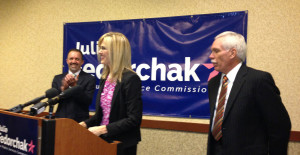
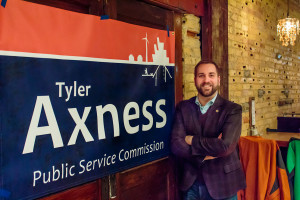
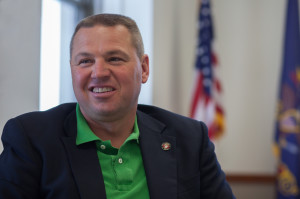
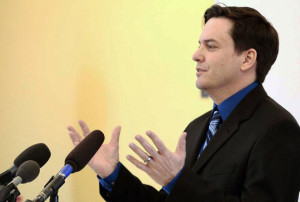


Leave a Reply